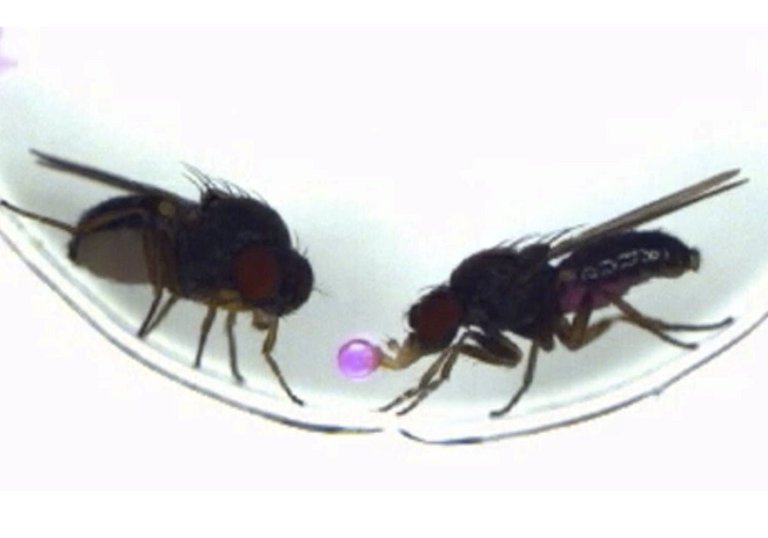An experiment to change the behavior of flies by editing genes
Lately, when they want to scare us, they try to intimidate us with artificial intelligence, which will make us all (more) idiots and take away our children's bread. Meanwhile, there is another technology equally or more disruptive and dangerous than AI that the disinformation media doesn't report on: gene editing. Increasingly interesting advances are being made, which allow parts of the genome of living beings to be copied and edited, altering their physical characteristics.
Now, a team of scientists from Nagoya University in Japan has gone a step further and managed to transfer a specific behavior from one fly species to another by manipulating a single gene. This is the first known example of single-gene manipulation to create new neural connections and transfer a behavior between species. The Nagoya University scientists focused on the courtship behavior of two species of fruit flies: Drosophila subobscura and Drosophila melanogaster.
In Drosophila subobscura, the male performs a ritual of regurgitating food into the female's mouth before copulation, while in Drosophila melanogaster, males court with wing vibrations. Japanese researchers genetically modified Drosophila melanogaster by hyperactivating the fru (fruitless) gene, a key factor in male courtship behavior. Thanks to this manipulation, melanogaster males adopted the regurgitation ritual typical of the subobscura species before copulation.
Thanks to this genetic manipulation, male D. melanogaster developed new neuronal projections, forming brain circuits that led them to change their behavior. A small, genetically controlled reconfiguration of neurons is enough to "rescue" or reactivate an ancestral behavior that lies dormant in the genome. Escape behaviors or olfactory preferences had already been induced by manipulating the activity of specific neurons; however, the Nagoya breakthrough stands out because it involves the entire repertoire of complex behavior, not just responses of intensity or aversion.
This experiment demonstrates that small genetic changes in existing neurons can drive the emergence of new behaviors in a species. Scientists hope this discovery will offer new insights into how behaviors evolve and how new species can be created through neuronal reconfigurations. By genetically modifying flies and other insects, it is possible to develop variants that do not harm crops, for example, ensuring that more males than females are born to curb pests without resorting to pesticides.
Now the question that arises for all of us is: could this invention rid us of idiots by changing a gene? Unfortunately, the answer is that, for now, it's not possible. Intelligence, personality, and behavior are extremely complex characteristics that are not controlled by a single gene but are the result of the interaction of thousands of genes, the environment, upbringing, and life experiences. But I haven't lost hope; all these technologies are in their infancy and still have to evolve.
